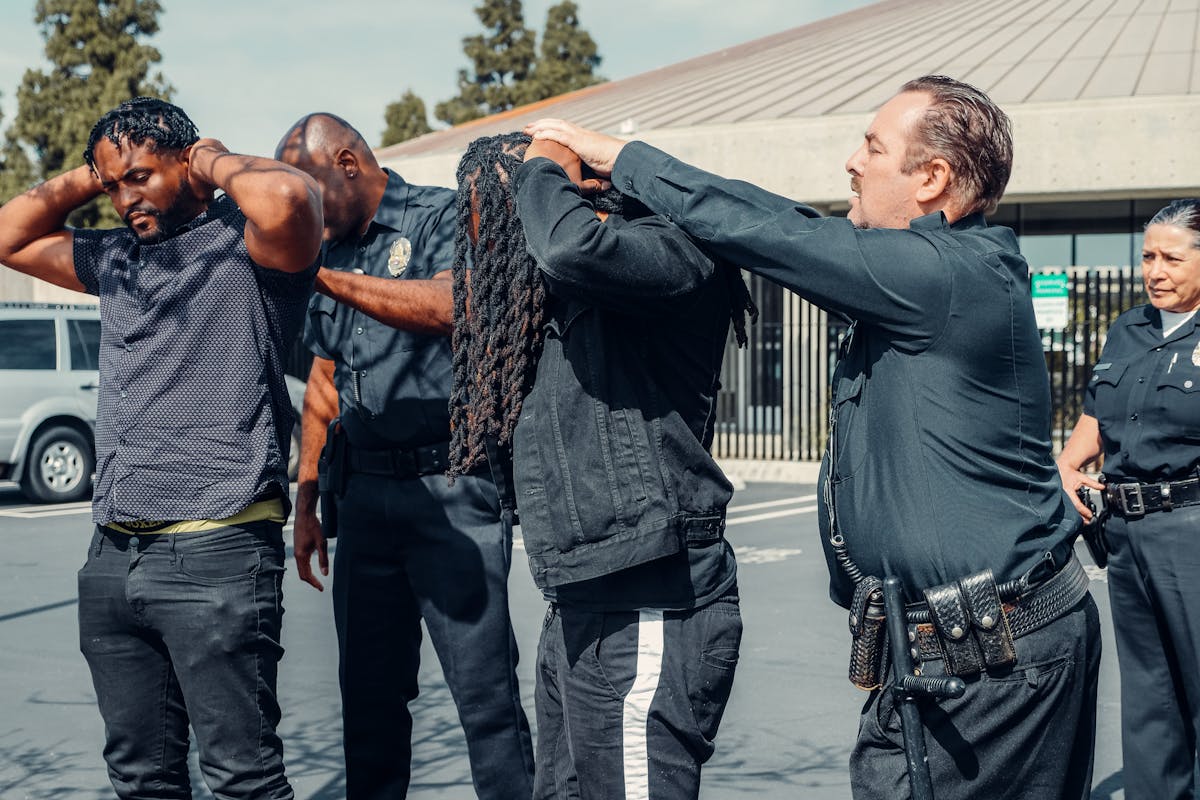Types of Burglary Covered Under Texas Law

In order to navigate the complexities of the Texas penal code, it is essential to understand the various classifications of burglary within the state’s legal framework. These classifications, which include residential, commercial, vehicle, and coin-operated machine burglary, are defined by specific criteria and carry unique legal penalties. The implications of these distinctions are significant, and they reach far beyond the mere act of unauthorized entry. As we investigate this topic, we will explore how nuances such as intent, time of crime, and the use of weapons can affect the severity of penalties for each type of burglary.
Understanding Texas Burglary Laws
In order to fully grasp the gravity of burglary offenses, it is vital to understand the specific laws that govern such crimes in the state of Texas. Texas defines burglary under penal code 30.02, which states that a person commits this offense if he/she enters a habitation or building not open to the public, without the consent of the owner, with the intent to commit a felony, theft, or assault.
Burglary motives can range from theft to assault, and the prosecution must prove these motives beyond a reasonable doubt for a conviction. The legal definitions emphasize the importance of intent. Without the intention to commit a crime, the act of illegally entering a building alone does not constitute burglary.
Whether a burglary is classified as a state jail felony, second-degree felony, or first-degree felony depends on several factors. These include the type of premises burglarized, whether the burglary was committed during the night, and whether any physical harm was inflicted or intended.
Conclusively, understanding Texas burglary laws requires an appreciation of legal definitions and the range of burglary motives. This knowledge is significant to comprehend the severity and consequences of these offenses.
Residential Burglary Explained
Having established a fundamental understanding of Texas burglary laws, we now turn our attention to one specific type of burglary – residential burglary. This crime is committed when an individual unlawfully enters a dwelling with the intention to commit a crime therein, most often theft.
Residential security plays an impactful role in burglary prevention and, consequently, the enforcement of Texas laws. A well-secured residence can be a powerful deterrent to potential burglars and considerably reduce the risk of residential burglary. The law encourages homeowners to take necessary precautions by installing quality locks, surveillance cameras, and alarm systems to enhance their residential security.
Moreover, the severity of punishment for residential burglary in Texas depends on several factors including the time of the crime, the presence of people in the home, and whether a weapon was used. Penalties range from fines to imprisonment, depending on the gravity of the crime committed.
Texas law recognizes the sanctity of one’s home and seeks to protect residents from the violation of their privacy and safety. It is essential for residents to be aware of the laws pertaining to residential burglary and to take steps to bolster their home security for effective burglary prevention.
Commercial Burglary Details
Commercial burglary, a significant aspect of burglary law in Texas, necessitates a thorough understanding of its definition, the associated penal consequences within the state jurisdiction, and the preventive measures and security protocols that can mitigate its occurrence. The extent of the law’s reach and its implications directly impact businesses, making it an essential area of focus. The ensuing discussion will provide an in-depth examination of these specific points, offering an all-encompassing perspective on commercial burglary under Texas law.
Defining Commercial Burglary
While many people associate burglary strictly with residential theft, it’s essential to recognize that the crime extends into commercial arenas as well. Commercial burglary involves illegal entry into a business or commercial property with the intent to commit a felony, theft, or an assault. This form of burglary is a serious offense in Texas and is dealt with sternly under the state’s penal code.
Commercial properties can include, but are not limited to, offices, retail stores, warehouses, and restaurants. The extent of the crime is often defined by the burglary motives, which can range from petty theft to more severe offenses such as vandalism, arson, or even violence against individuals found on the property.
It’s also important to note that the severity of a commercial burglary charge can be influenced by several factors. These may include the time of the burglary, whether a weapon was used, and if the property was occupied at the time of the crime. This level of complexity is why understanding commercial burglary necessitates a thorough consideration of all its components. A detailed understanding will be instrumental in both prevention and legal dispute resolution regarding these offenses.
Penal Consequences in Texas
Understanding the nuances of commercial burglary, its components, and varying degrees of severity, it naturally follows to explore the potential legal ramifications of such a crime under Texas law. The penal consequences in Texas for commercial burglary are severe, intended to deter potential offenders and curtail burglary trends.
The Texas Penal Code section 30.02 defines burglary as an offense punishable as a state jail felony, a second-degree felony, or a first-degree felony, dependent upon the specifics of the crime. This can result in penalties ranging from 180 days to 99 years in prison, and fines up to $10,000. It is crucial to acknowledge that these consequences can be heightened if the crime was committed with specific burglary motives, such as the use of a deadly weapon, or if the burglary resulted in physical harm to another person.
In recent years, Texas has seen an increase in commercial burglary, a trend that influences the determination of penalties. The state’s approach to these crimes is resolute, aiming to deter future offenses through stringent punishment. Consequently, those convicted of commercial burglary face not only substantial fines and potential incarceration, but also long-term societal and personal consequences.
Preventive Measures and Security
In light of the severe legal consequences associated with commercial burglary, it becomes increasingly important to focus on preventive measures and security. It is essential for businesses in Texas to adopt thorough security solutions to protect their assets from criminal activities.
One of the most effective ways to deter burglars is by investing in advanced home security systems. Though traditionally associated with residential properties, these systems are equally beneficial for commercial establishments. They typically include security cameras, alarms, and motion sensors that can instantly alert authorities to any unauthorized access.
Beyond physical security measures, businesses can also benefit from participating in neighborhood watch programs. These collaborative efforts foster a sense of community vigilance, making it harder for burglars to operate unnoticed. They involve regular communication between businesses, local law enforcement, and community members to report suspicious activity promptly.
Furthermore, routine security audits can identify potential points of vulnerability and suggest improvements. These audits can encompass everything from reviewing security footage to evaluating the effectiveness of locks and alarms.

Burglary of Vehicles
Theft from motor vehicles, often referred to as “Burglary of Vehicles” under Texas law, is a common crime that carries considerable penalties. It involves the unlawful entry of another’s vehicle with the intent to commit theft or felony.
Vehicle theft is a considerable issue in Texas, where a large number of cars, trucks, and motorcycles are stolen every year. The crime isn’t limited to stealing the entire vehicle. It also includes taking items from within the vehicle, such as electronics, personal belongings, or even components of the vehicle itself.
Burglary of Vehicles under Texas law is classified as a Class A misdemeanor, and if convicted, one could face up to one year in jail and a fine of up to $4,000. However, if an individual has been previously convicted of this offense, the charges can be escalated to a state jail felony.
Auto security plays a critical role in deterring this crime. Measures like installing alarm systems, using steering wheel locks, and never leaving valuables in plain sight can considerably reduce the chances of becoming a victim. As a result, it is paramount for vehicle owners to prioritize auto security to protect their property against theft.
Coin Operated Machine Burglary
Under Texas law, the specific crime of Coin Operated Machine Burglary is a distinct type of burglary that warrants particular attention. The crime is defined and the penalties it incurs are laid out under specific statutes in this jurisdiction. In order to fully comprehend the intricacies of this crime, we will first elucidate its legal definition, followed by a detailed examination of the legal penalties associated with it.
Defining Coin Machine Burglary
A significant proportion of burglary cases in Texas involve coin-operated machines. Coin machine burglary is a crime defined by unlawfully breaking into or unlawfully remaining concealed with intent to commit felony or theft in a coin-operated machine. These machines include but are not limited to, vending machines, coin-operated washers and dryers, arcade games, and parking meters.
Coin machine security is a critical facet in the prevention of these types of burglaries. High-quality locks, surveillance cameras, and alarm systems are often utilized to deter potential thieves. However, despite these measures, the allure of quick cash often motivates criminals to exploit any perceived vulnerabilities.
Theft prevention is a shared responsibility between the machine owners, law enforcement, and the community at large. Owners must guarantee their machines are secure, law enforcement should patrol areas where these machines are located, and the community should report suspicious activities. Public awareness is also essential in preventing these crimes.
Understandably, the complexity of coin machine burglary extends beyond the act itself. It encompasses elements of security measures, community involvement, and the relentless pursuit of justice by law enforcement agencies. This makes it a unique category of burglary under Texas law.
Texas Legal Penalties
What are the consequences faced by those violating the law by committing burglary of coin-operated machines in Texas? The state of Texas takes these offenses seriously and applies stringent legal penalties.
For those found guilty, the crime is classified as a state jail felony. This involves a potential imprisonment period of 180 days up to 2 years in a state jail facility along with a fine of up to $10,000. The severity of the punishment often correlates with the value of the stolen property and any prior convictions.
Burglary motivations contribute notably to the severity of the offense; for instance, if the crime was committed under duress or as part of a larger criminal activity. Additionally, burglary statistics in Texas show a worrying trend of increase in the past years, prompting stricter enforcement and penalties.
These penalties serve as a deterrent to potential offenders, but also aim to rehabilitate and discourage repeat offenses. Understanding the serious legal consequences of coin-operated machine burglary in Texas is essential to curb this rising trend and guarantee the safety and security of property and businesses statewide.
Penalties for Different Burglaries
In the state of Texas, the severity of penalties for burglary varies greatly depending on the specific circumstances of the crime. An analysis of burglary motives and burglary statistics in Texas provides a broader understanding of this variance.
Burglary motives, such as theft, assault, or any felony offense, greatly influence the severity of the penalty. Burglaries committed with the intent to commit a felony other than theft typically result in more severe penalties. The nature of the invaded property also impacts the penalty; for instance, burglary of a habitation often results in harsher punishments than burglary of a vehicle.
Burglary statistics in Texas reveal a high incidence of this crime, which prompts the state to impose strict penalties as a deterrent. Convicted offenders often face imprisonment, hefty fines, or a combination of both. First-time offenders may face a state-jail felony, punishable by 180 days to 2 years in jail. However, if the burglary was committed in a habitation or with the intent to commit a serious felony, the offender can expect a second-degree or even a first-degree felony charge, punishable by up to 99 years in prison. The exact penalty is determined by the court based on the specific circumstances of each case.
Defenses Against Burglary Charges
While facing accusations of burglary may seem overwhelming, it’s important to understand that there are several potential defenses available under Texas law. The defense strategy will depend on the specific circumstances of the case, but it may include self-defense claims or necessity defense.
Self-defense claims can be asserted if the accused was, in fact, protecting himself or others from harm. For instance, in a scenario where the accused entered another’s property to prevent an ongoing assault, this defense could be effective. However, the burden of proof rests with the defendant, requiring compelling evidence to substantiate their claim.
Necessity defense, meanwhile, asserts that the alleged illegal action was taken to prevent a greater harm. Such a defense might be used if, for instance, an individual broke into a house to escape a dangerous situation, such as a violent riot or life-threatening weather conditions.
In both instances, the defense must prove that the defendant’s actions were immediately necessary, and that there was no legal alternative available. It’s essential to consult with a knowledgeable attorney who can help navigate these complex legal issues.
Frequently Asked Questions
How Does Texas Law Define ‘Breaking and Entering’?
Texas law defines ‘breaking and entering’ as unauthorized intrusion into a structure. The ‘breaking’ definition involves forceful entry, while ‘entering’ elements refer to the unlawful intrusion itself into the premises.
What Are the Rights of a Victim of Burglary in Texas?
In Texas, burglary victims have rights to victim assistance programs, which include counseling and compensation. Additionally, they have legal remedies such as pursuing restitution or filing a civil lawsuit against the perpetrator.
Are There Specific Laws for Burglary Involving Firearms in Texas?
Yes, Texas law stipulates specific penalties for burglary involving firearms. Unlawful firearm possession during a burglary can elevate the crime’s severity, potentially leading to increased burglary penalties under the Texas Penal Code.
What Are the Recidivism Rates for Burglary in Texas?
In Texas, recidivism rates for burglary remain a significant concern. Extensive recidivism statistics are periodically reported, aiding in the development of burglary prevention strategies and programs to reduce repeat offenses in the state.
How Does Texas Law Handle Juvenile Burglary Cases?
Texas law addresses juvenile burglary cases through the juvenile justice system, which emphasizes rehabilitation. It often incorporates diversion programs aimed at preventing recidivism and fostering positive behavioral changes among youth offenders.






